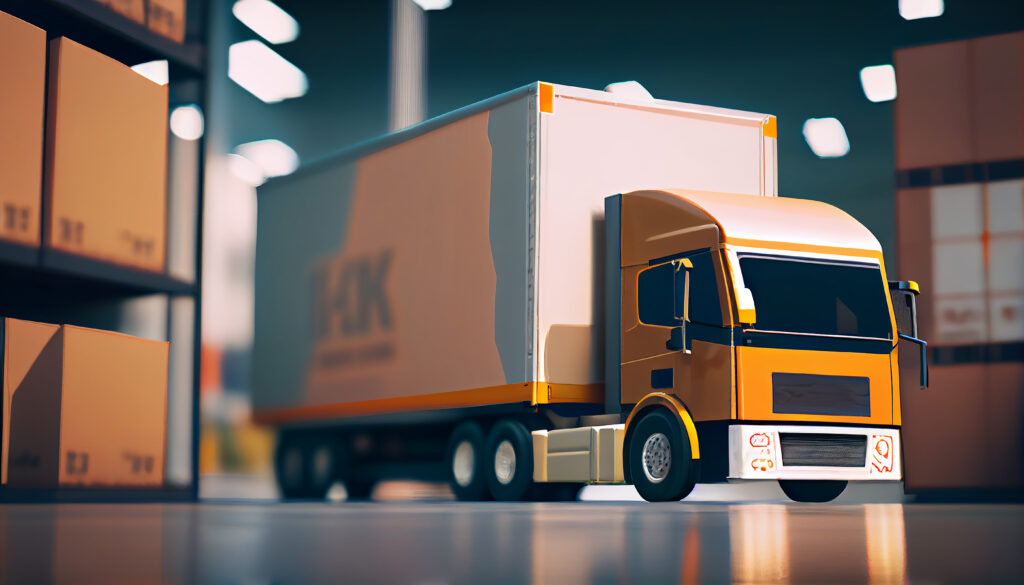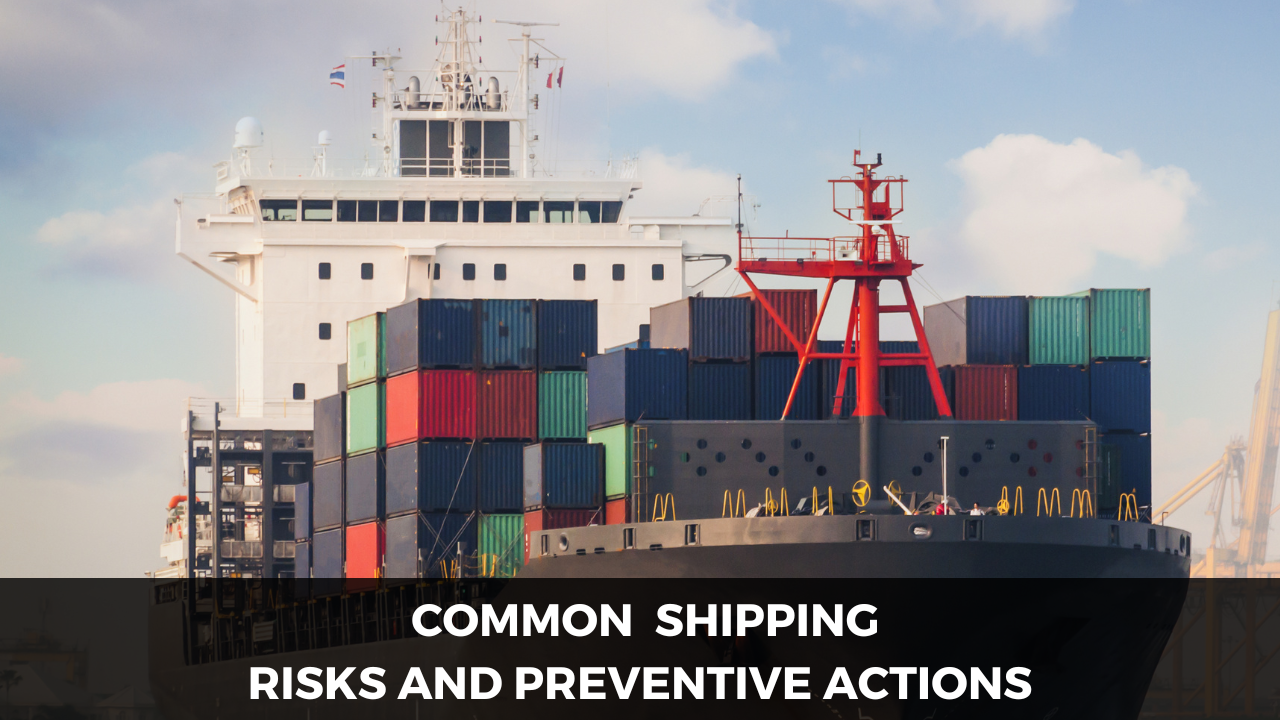For companies of all sizes, shipping products domestically or abroad is a typical activity. Transporting goods can be a dependable way to get them where they need to go, but there are a number of risks that might occur. Cargo insurance can be useful in this situation.
A sort of insurance called cargo insurance protects against the theft, loss, or damage of cargo while it is being transported. It is a crucial factor to take into account for both individuals transporting costly products and for companies whose operations depend on the transit of commodities.
We’ll talk about the significance of cargo insurance and why it’s crucial for both businesses and individuals to secure their goods during transit in this blog post. We will also discuss the different kinds of cargo insurance that are offered and how to select the best plan for your requirements.

Shipping Goods Risks
Whether items are being shipped by land, sea, or air, there are a variety of dangers involved. The following are a few potential risks:
- Accidents: Mishaps can happen while traveling, such as a ship sinking or a truck flipping over. The items being transported may sustain severe damage as a result of these mishaps.
- Natural disasters: Storms, earthquakes, and floods are just a few examples of how natural disasters can harm commodities while they are being transported.
- Theft: Stolen items are a possibility when being transported, especially when doing so abroad or via high-crime zones.
- Delay: Transportation delays can happen for a number of reasons, such as bad weather, mechanical problems, and customs hold-ups. Businesses may incur additional expenses and lose time as a result of these delays.
COVID-19's effects on cargo insurance
The maritime sector and cargo insurance have both been significantly impacted by the COVID-19 outbreak. The following are a few ways that the pandemic has impacted freight insurance:
- Demand for cargo insurance: The Demand has significantly increased as a result of the epidemic, as firms have had to adapt to new supply chain issues and a higher risk of product loss or damage.
- Modifications to coverage: Due to the pandemic’s impact on the environment, several cargo insurance policies have had to change. While some policies may have added coverage for pandemic-related losses, others may have excluded coverage for losses brought on by COVID-19.
- Increases in premiums: Due to the increasing demand for cargo insurance as well as the added dangers brought on by the epidemic, premiums have gone up for many plans.
- Modifications to the claims procedure: The pandemic has also resulted in modifications to the cargo insurance claims procedure. Many insurers have remote claims procedures in place, and they might need more supporting paperwork for claims involving COVID-19.
Businesses and individuals should carefully evaluate their cargo insurance coverage and be aware of any modifications that might have been made as a result of the outbreak.
Cargo Insurance Categories
There are numerous kinds of cargo insurance available, and they all provide varying degrees of protection. Among the popular forms of cargo insurance are:
- All dangers: All risks cargo insurance, as the name implies, covers all risks of physical loss or damage to the items being shipped, with the exception of those that are expressly excluded by the policy.
- Coverage changes: Numerous shipping insurance contracts have to change to reflect the new environment created by the pandemic. While some policies may have added coverage for pandemic-related losses, others may have excluded coverage for losses brought on by COVID-19.
- Named dangers: The products being shipped are protected from specific risks that are listed in the policy by named perils cargo insurance. These dangers could include natural calamities, theft, and fire.
- ICCs (Institute Cargo Clauses): The International Chamber of Commerce created a set of common cargo insurance clauses known as the ICC. The ICC is available in three different variants, each of which gives varying degrees of coverage.
The advantages of cargo insurance
These risks are covered by cargo insurance, which also has other advantages for companies and people carrying products. A few of the main advantages of cargo insurance are as follows:
- Financial security: In the event that products are misplaced, harmed, or stolen while being transported, cargo insurance offers financial security. Without insurance, organizations and people can be forced to cover the full cost of replacing or mending the products, which can be expensive.
- Assurance: Shipping products can be nerve-wracking, especially if they are pricey or need to be delivered quickly. Knowing that there is a safety net in place in the case of a loss gives one piece of mind when they have cargo insurance.
- Claim-making Capabilities: Businesses and individuals with cargo insurance are able to file claims for reimbursement in the event that something goes wrong during shipping. This can assist in paying for any additional costs that might have arisen as a result of the loss, in addition to the cost of any lost or damaged products.
A Guide to Cargo Insurance Policy Selection
It’s crucial to take into account the particular requirements of your company or the products being sent when selecting a cargo insurance coverage. Some things to think about are:
- Value of the items: Considering the value of the products being delivered is crucial when selecting a cargo insurance policy because it establishes the level of protection required to safeguard the commodities. To guarantee that the products being delivered are completely covered, it might be necessary to acquire a higher level of coverage if they are expensive. However, if the products are of smaller value, a minimal level of protection might be adequate. It’s crucial to give serious thought to the value of the cargo being carried and select a cargo insurance policy that offers the right degree of protection.
- Transportation mode: The chosen form of travel may have an impact on the risks involved and the required insurance. For instance, the possibility of turbulence or other problems makes carrying products by air potentially riskier than shipping by land.
- Destination: The location of the goods has the potential to affect both the hazards involved and the required insurance. For instance, shipping to a place with a high theft rate might call for higher insurance.
- Exclusions: To avoid being unprepared in the event of a loss, it is crucial to thoroughly analyze the exclusions in a cargo insurance policy.
Additional Options for Cargo Coverage
Businesses and individuals transporting products may be interested in a variety of extra coverage options in addition to the forms of cargo insurance covered above. Some of these choices consist of:
- Marine cargo insurance: This kind of insurance protects against the loss or destruction of cargo while it is being transported by sea. This can involve protection for products transported by barge, ferry, or container ship.
- Insurance for airborne cargo: This insurance protects against the loss or destruction of cargo during flight. This kind of insurance is crucial for companies sending expensive or time-sensitive items because it can offer protection from the extra hazards associated with air transportation.
- Insurance for inland transit: This type of insurance provides coverage for items that are lost or damaged while being transported domestically, such as by truck or train. Due to the relatively lesser risks, this sort of insurance is frequently less expensive than other types of cargo insurance.
- Insurance for warehouses: Insurance for warehouses covers the loss or damage to products while they are being stored there. For companies whose operations depend on warehousing, this kind of insurance is crucial.
Best Practices for Goods Protection
Businesses and individuals can protect their goods during shipment by employing a number of best practices in addition to acquiring cargo insurance. Among these ideal practices are:
- Use reliable shipping companies: When sending goods, it’s crucial to engage with reputed shipping companies as this can lower the risk of loss or damage.
- Proper product packing: Proper product packing help to lower the chance of damage occurring during shipment. This can entail packing the items safely, utilizing strong boxes, and adding padding.
- Utilize monitoring technology: Monitoring the whereabouts of your items and ensuring that they are being carried safely can be accomplished with the aid of tracking technology, such as GPS or RFID.
- Communicate with carriers: Engage in effective communication with carriers to make sure that any possible problems are quickly detected and resolved.
Conclusion
Businesses and individuals exporting products should think about cargo insurance since it offers protection against the hazards associated with transportation. There are numerous different kinds of cargo insurance available, so it’s crucial to pick the one that best suits your requirements.
It is crucial to comprehend any adjustments that may have been made to policies as a result of the COVID-19 outbreak. The shipping sector and cargo insurance have both been significantly impacted by the pandemic. Businesses and individuals can protect their goods and guarantee a smooth and successful shipping process by adhering to best practices for protecting commodities during shipment and buying the proper cargo insurance coverage.







